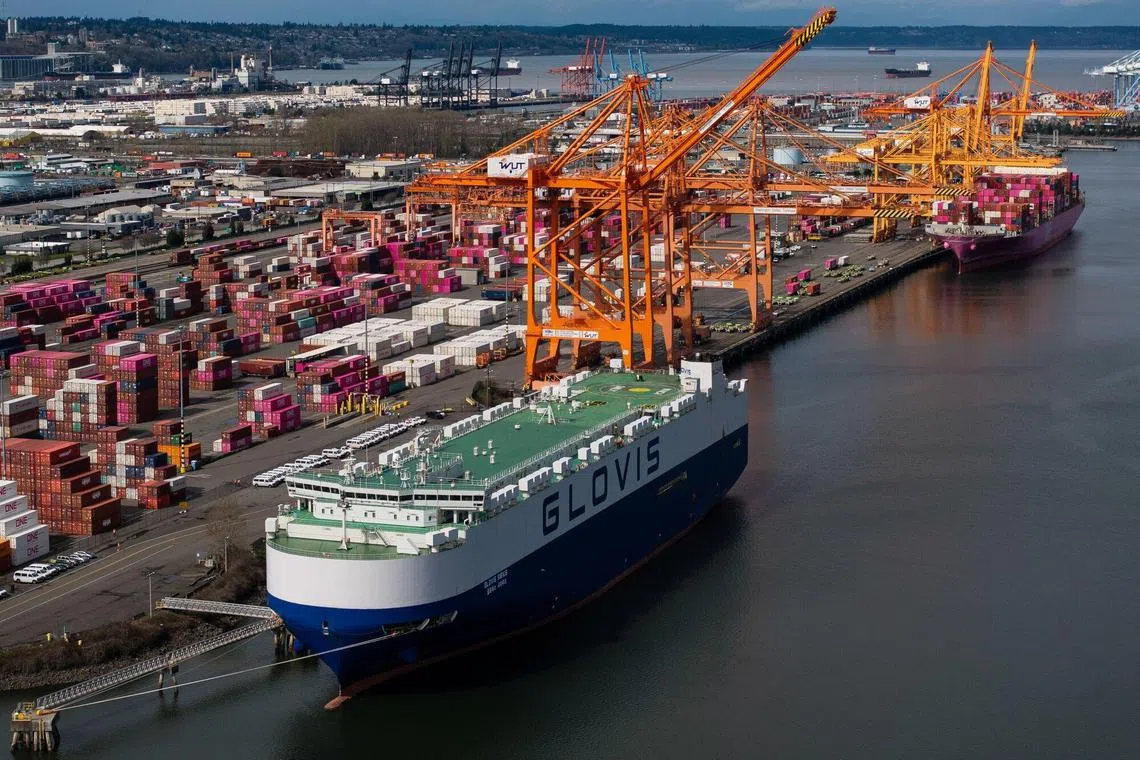Shipowners already adjusting contracts for proposed US tax on Chinese vessels
Sign up now: Get ST's newsletters delivered to your inbox

New clauses state that companies hiring Chinese ships will bear the cost of any taxes, in part or in full, sources said.
PHOTO: BLOOMBERG
Follow topic:
SINGAPORE – Shipowners and charterers are altering leasing contracts to cope with the multimillion-dollar port fees expected to be imposed on Chinese-built vessels by the Trump administration, according to people familiar with the matter.
The contours of Washington’s plan to revitalise the US shipbuilding industry are unclear, and the US Trade Representative (USTR) has yet to make concrete proposals on expected measures, including levies.
Still, the sector is already preparing for imminent additional risk, with new clauses stating that companies hiring Chinese ships will bear the cost of any taxes, in part or in full, the sources said.
Some new provisions in leasing contracts – not unlike those currently used to cover cargo-related expenses – will establish that all duties and taxes, if proposed by the USTR and introduced, will be for charterers to cover, the sources added. Another version caps the amount that a shipowner pays, with the charterer covering the remaining fee.
The shipping industry has adapted swiftly to significant shocks in recent years, from upheaval in the Middle East to punitive curbs on Russia’s oil complex. Even so, the ambiguity around the US proposal has been a source of considerable frustration for the industry, which remains the backbone of global trade.
Among the questions plaguing shipowners is how exactly a Chinese vessel will be defined in the final instance.
The USTR is currently recommending different fees, starting with a levy of as much as US$1 million (S$1.3 million) per ship per port visit. That could ultimately add up to US$3.5 million per port call, if the ship is Chinese-built with a Chinese operator that has another ship on order from a Chinese manufacturer, according to Clarksons.
More than a third of the tonnage from ships currently trading were built by China, Clarksons data shows.
A USTR hearing in Washington this week, ahead of final proposals due in April, brought together US lawmakers, labour unions, steel manufacturers and shippers, with many at odds over the hefty levies. While there has been broad concern over China’s dominance, several voices fretted that the blanket tax could snarl global supply chains and severely damage sectors of the economy.
Some in the industry, especially with high-value shipments like oil, may be able to absorb the additional cost. Some container ship owners also think the large volume of goods that boxships can carry means that the levy, when spread across the cargoes on a ship, is nearly negligible. The largest container ships can carry nearly 24,000 twenty-foot containers, a standardised unit also known as TEUs.
Others, especially those trading cheaper goods such as fresh fruit, fear they may have to pass on costs to customers and in turn hurt their businesses.
The proposed tax “is an adjustable figure that will be basically passed on to the consumer or the customers”, said Mr Moritz Fuhrmann, co-chief executive officer of MPC Container Ships, during a panel discussion at a Singapore maritime conference this week. BLOOMBERG

